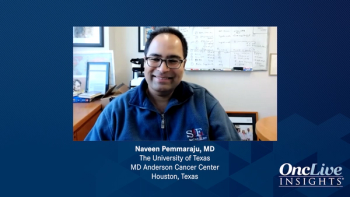
Comprehensive discussion highlighting diagnostic and molecular testing involved in the diagnosis of myelofibrosis, challenges related to early diagnosis, and consideration factors for assessing prognostic risk.

Your AI-Trained Oncology Knowledge Connection!


Comprehensive discussion highlighting diagnostic and molecular testing involved in the diagnosis of myelofibrosis, challenges related to early diagnosis, and consideration factors for assessing prognostic risk.

A recent retrospective study found that patients with endometrial cancer in International FICO stage I high- intermediate risk subgroups with fewer than 2 risk factors had a greater than 95% cause-specific survival at 3-year follow-up, and subgroups with 2 or more risk factors had poorer outcomes.
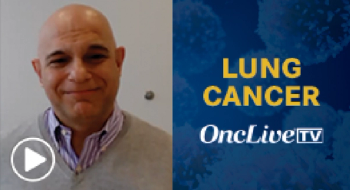
Khaled Hassan, MD, discusses key results from the phase 1 CHRYSALIS trial of the bispecific antibody amivantamab-vmjw in non–small cell lung cancer expressing EGFR exon 20 insertion mutations.
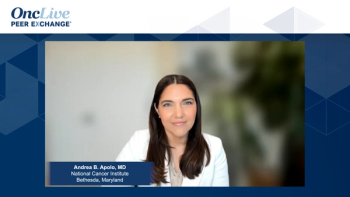
Switching their focus to non-muscle-invasive bladder cancer (NMIBC), panelists identify the treatment armamentarium in this setting.
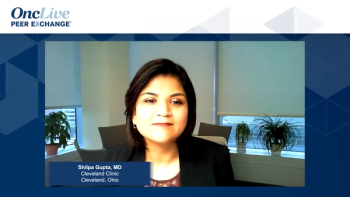
A bird’s eye view of treatment modalities in urothelial carcinoma covering systemic, surgical, and bladder preserving strategies.

Shared insight on classification, risk factors, and important biomarkers and pathways in myelofibrosis.
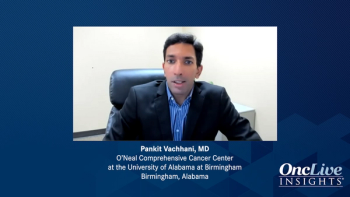
Panel experts share insight regarding prognosis for patients with polycythemia vera and the associated risk for progression to myelofibrosis.

Craig Sauter, MD, discussed the common limitations of CAR T-cell therapy through timely referral and the existing questions for patients with LBCL who progress on CAR T-cell therapy.
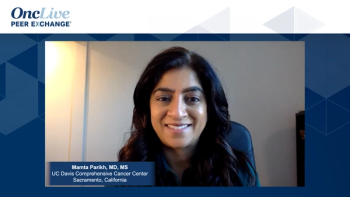
A brief review of sequencing patterns in urothelial carcinoma and the typical number of lines of therapy a patient may receive.
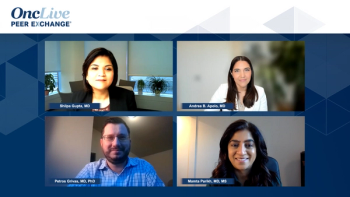
A panel of four key opinion leaders share real-world urothelial carcinoma practice patterns at their respective institutions.
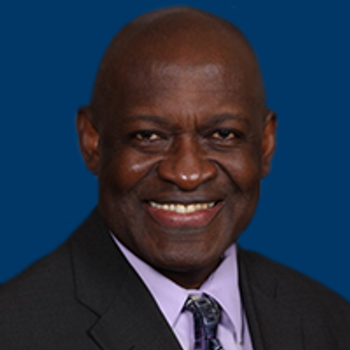
Cleveland Clinic has opened a new state-of-the-art cancer facility, named the Fatima bint Mubarak Center, at Cleveland Clinic Abu Dhabi.
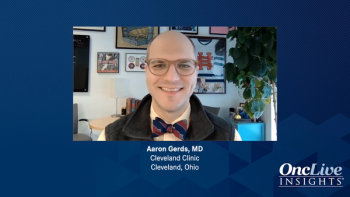
A review of systemic treatment options used in polycythemia vera and the roles these play in the current treatment landscape.

A brief overview of myeloproliferative neoplasms and the associated signs and symptoms commonly presenting in patients.
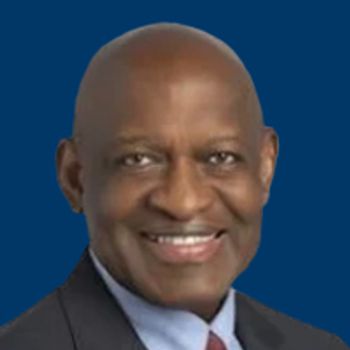
Adjuvant osimertinib and other targeted therapies, such as KRAS G12C inhibitors, could continue to change the perioperative treatment landscape in non–small cell lung cancer.
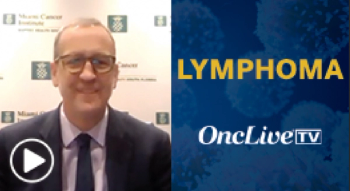
Craig Sauter, MD, discusses where BTK inhibitors could fit into the frontline treatment landscape for patients with central nervous system lymphoma and research aiming to address other unmet needs for this patient population.

The advent of effective first-generation TKIs has allowed for improvements among patients with Philadelphia chromosome–positive disease, which is traditionally associated with a poor prognosis, as it generally does not respond to conventional chemotherapy options.

Khaled Hassan, MD, discusses the importance of performing precise molecular profiling in patients with lung cancer and the need to identify individually tailored treatment approaches.

To increase access to emerging cancer therapeutics and improve convenience for patients and researchers, Taussig Cancer Institute opened a dedicated Novel Therapeutics Clinic.

Pradnya D. Patil, MD, FACP, discusses unmet needs that remain to be addressed with the use of immunotherapy in patients with non–small cell lung cancer.
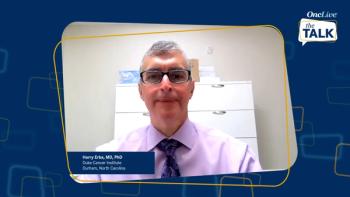
Shared insight on recently updated data in acute myeloid leukemia following the ASH 2022 annual meeting.

Experts in hematologic oncology review and analyze updated data in chronic myeloid leukemia from ASH 2022.
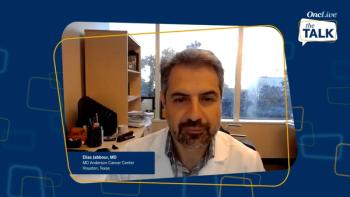
Following the ASH 2022 Annual Meeting, hematologic oncology experts discuss updated data in acute lymphocytic leukemia.

Julie Lang, MD, discusses potential applications for the Parsortix® PC1 system in metastatic breast cancer.

Despite American Society of Clinical Oncology guidelines calling for introduction of palliative care early in the course of disease, these services remain underused.

Daniel Rotroff, PhD, discusses the investigation of biomarkers that could help identify patients with breast cancer who are at risk for developing chemotherapy-induced peripheral neuropathy.

Craig Sauter, MD, discusses the rationale for investigating maintenance pembrolizumab following autologous stem cell transplant in patients with T-cell NHL and explained some of the potential challenges of investigating this regimen in a larger prospective trial in this patient population.

Megan Kruse, MD, discusses how socioeconomic disparities and access to health insurance can contribute to poorer overall survival (OS) outcomes in adolescent patients with invasive breast cancer.
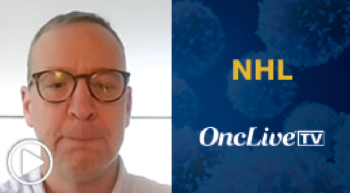
Craig Sauter, MD, discusses important considerations regarding the use of pembrolizumab after autologous stem cell transplant in T-cell non-Hodgkin lymphoma.
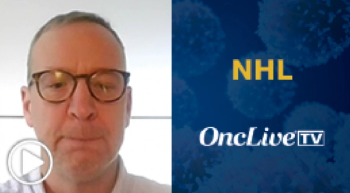
Craig Sauter, MD, discusses the investigation of pembrolizumab given after stem cell transplant in T-cell non-Hodgkin lymphoma.

Omar Mian, MD, PhD, discusses the ongoing investigation into the synchronous up-front setting of metastatic prostate cancer.